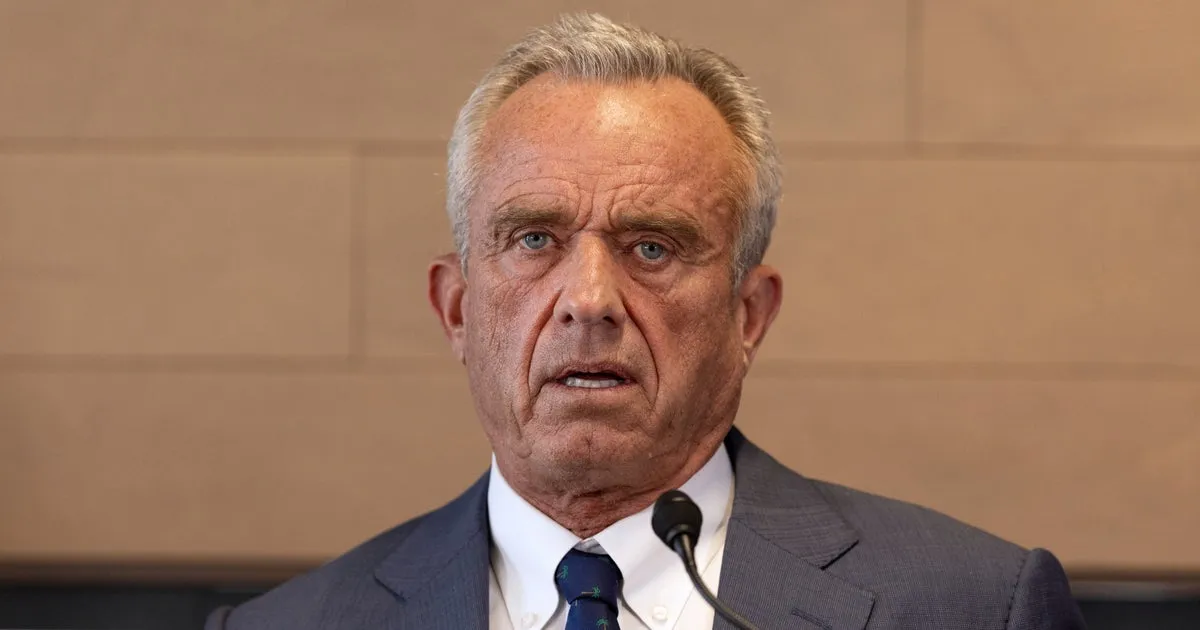
This week, the United States has seen a significant surge in measles cases, surpassing 1,000 for only the second time in three decades. According to the latest data from the Centers for Disease Control and Prevention (CDC), a total of 1,001 cases have been reported across at least 31 states, with Texas bearing the brunt of the outbreak, accounting for 709 cases. This alarming trend raises serious public health concerns as the outbreak continues to spread.
Tragically, this outbreak has resulted in the deaths of three unvaccinated individuals, including two school-aged children from Texas. The CDC reports that a staggering 96% of the current cases in the U.S. involve individuals who are either unvaccinated or whose vaccination status is unknown. Furthermore, over 120 people have been hospitalized as a direct result of this resurgence of measles, highlighting the critical importance of vaccination.
Despite the severity of the situation, Health and Human Services Secretary Robert F. Kennedy Jr., known for his anti-vaccine stance, has consistently downplayed the outbreak. In the wake of the death of a 6-year-old boy in February, Kennedy remarked that such fatalities were “not unusual,” stating, “We have measles outbreaks every year.” However, this outbreak is unprecedented, marking the second-highest case count in the past 25 years.
After facing backlash, Kennedy did attempt to shift his narrative following the funeral of an 8-year-old Texas girl who succumbed to measles in early April. He acknowledged the importance of the MMR vaccine (measles, mumps, and rubella) as a means to prevent the spread of the disease, stating on social media, “The most effective way to prevent the spread of measles is the MMR vaccine.” However, he has since continued to minimize both the outbreak's severity and the vaccine's effectiveness.
At the end of April, Kennedy made baseless claims suggesting that the measles vaccine “contains a lot of aborted fetus debris and DNA particles.” Shortly after, he appeared on television, advising parents to “do your own research” on vaccines, yet he failed to provide credible sources for his assertions. In a troubling development, Kennedy also announced that the HHS would explore the use of vitamins as a potential treatment for measles, acknowledging that many individuals and communities in the U.S. may opt not to vaccinate.
In a controversial move, Kennedy revealed that the HHS will now mandate placebo testing for all new vaccines. Experts warn that such changes could significantly delay vaccine availability and potentially create scenarios where individuals requiring life-saving vaccinations might receive a placebo instead of the actual vaccine. Paul Offit, director of the Vaccine Education Center at Children’s Hospital of Philadelphia, voiced his concerns, stating, “You are watching the gradual dissolution of the vaccine infrastructure in this country.”
As the CDC continues to recommend vaccinations as the most effective method for preventing measles, the ongoing situation underscores the critical need for public awareness and education regarding the importance of vaccines. The rise in measles cases is not just a health issue; it reflects broader societal challenges related to vaccine hesitancy and misinformation.
In light of these developments, it is essential for the public to stay informed and consider the significant role that vaccination plays in protecting not only individual health but also the health of the community as a whole. Vaccines save lives, and staying updated on immunization schedules can help prevent the resurgence of diseases like measles.